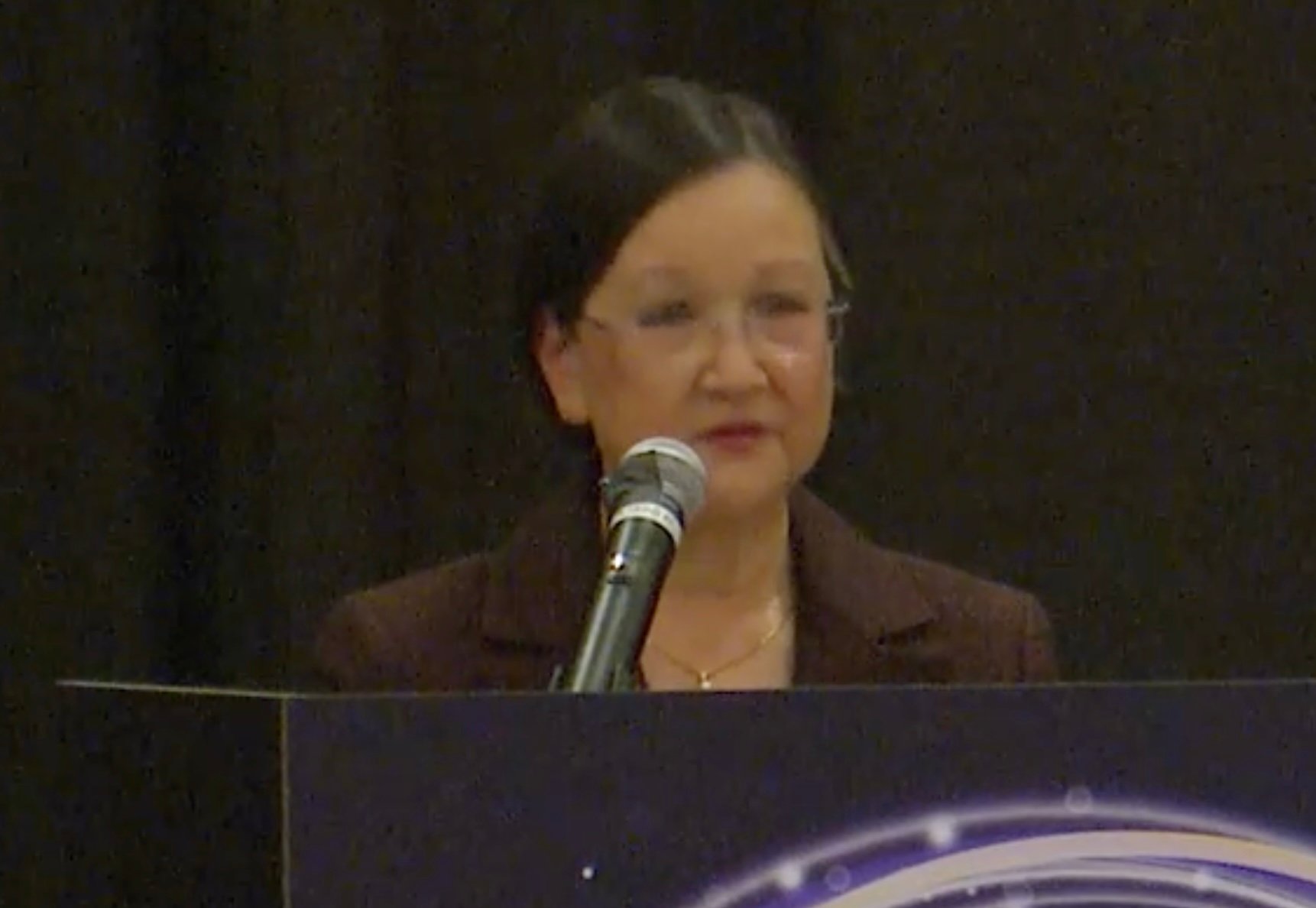LOS ANGELES (CN) — U.S. District Judge Dolly Gee took the reins Monday as chief judge for the Central District of California, the largest federal district in terms of the number of people — about 20 million — under its jurisdiction.
Gee, 64, became the first Chinese American woman to serve as a so-called Article III federal judge following her nomination by President Barack Obama. She had initially been nominated by Bill Clinton 10 years earlier, but the Republican-controlled Senate never voted to confirm her appointment before Clinton's term as president ran out.
Gee takes over as chief judge of the sprawling federal court in Southern California from U.S. District Judge Philip Gutierrez who served in that role for the past four years. The Central District encompasses seven counties and has courthouses in Los Angeles, Santa Ana and Riverside.
"As the child of immigrants and the great, great grandchild of a Chinese laborer who was forced to return to China in the face of discrimination, Judge Gee has long been a champion for diversity and inclusion — and not just for Asian Americans, but Americans of all diverse backgrounds," the National Asian Pacific American Bar Association said last year when Gee was named as a recipient of the American Bar Association's 2024 Spirit of Excellence Award.
The judge captured the national spotlight during the Trump administration's efforts to prevent migrants from Central America and other countries to enter the U.S. while overseeing the implementation of the so-called Flores agreement that set strict limits on the detention of minors in the custody of U.S. immigration agencies.
In that capacity, Gee clashed with the Justice Department over the treatment of minors at detention facilities along the Mexican border where they weren't provided with proper meals and basic hygienic products like soap and toothpaste. The judge appointed an independent monitor to inspect the detention facilities and report back to her on the conditions in which the children were housed — a decision that was upheld on appeal.
A native of Hawthorne in LA County, Gee got both her bachelor's and her law degree from UCLA. In 1986, she joined Schwartz, Steinsapir, Dohrmann & Sommers LLP, a law firm specializing in labor issues, where she became a partner after four years.
As a judge, she became involved the "disruption" of the labor market by gig-economy businesses when Uber sued to block a union-backed California law that forces it to treat its drivers as employees rather than an independent contractors. Gee rebuffed Uber's challenge to the law, but a panel of the Ninth Circuit Court of Appeals found that she should take another look at the animus against Uber that the company claims led it to be singled out by lawmakers.
That decision, however, was put on hold for an en banc panel of the Ninth Circuit to take up Uber's appeal. The 11-judge panel that heard the case appeared more inclined to uphold Gee's decision.
Gee's perceived liberal bent occasionally has caused some grumblings in the corridors of the federal courthouse in LA among prosecutors and federal investigators.
Last year, Gee sentenced the mastermind of the 1-800-GET-THIN scam, who bilked insurance companies out of hundreds of millions of dollars with faked claims, to just seven years in prison and let him remain out of custody while he appeals his conviction. The government had sought 22 years prison for Julian Omidi.
Gee said at the sentencing hearing that she believed that the crimes Omidi had committed were serious but that the federal guidelines for fraud convictions are disproportionate.
In 2021, Gee issued final judgment in Courthouse News Service's decadelong fight for on-receipt access to new complaints in Ventura County — a fight that included two trips to the Ninth Circuit and set the stage for the news service's First Amendment war nationwide.
“The court will therefore adopt Courthouse News Service’s proposed language on the right of access attaching when complaints are ‘received by a court,’” Gee wrote, putting the final nail in Courthouse News Service v. Planet.
Subscribe to Closing Arguments
Sign up for new weekly newsletter Closing Arguments to get the latest about ongoing trials, major litigation and hot cases and rulings in courthouses around the U.S. and the world.









